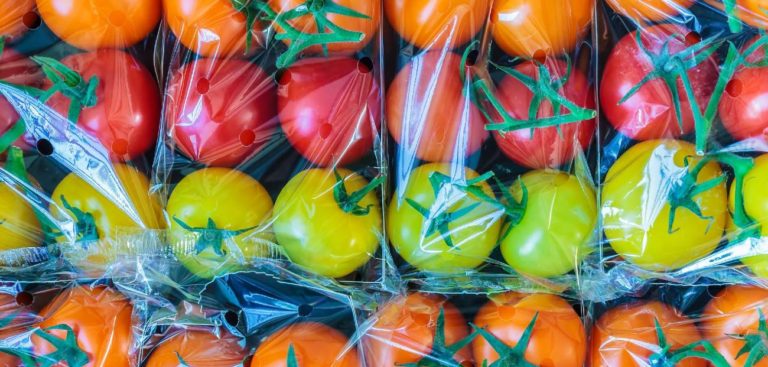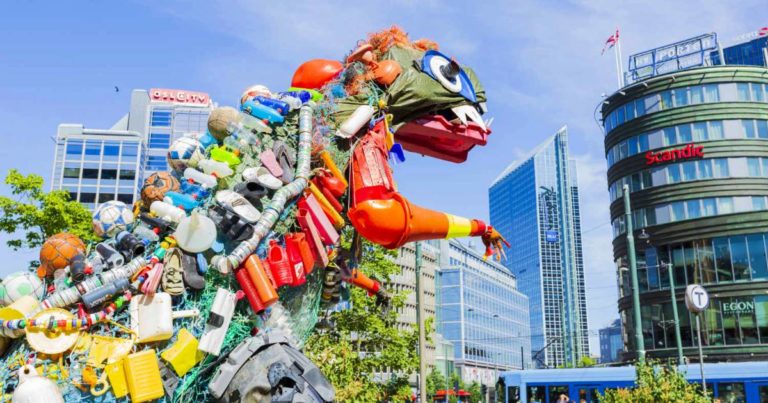We often talk about recycling as a solution to the waste problem, but is it really the most effective approach? In fact, recycling comes last in the waste management hierarchy. Before we get to recycling, it’s crucial to understand and adopt reduce and reuse practices, which can have a much more significant impact on reducing waste volume. By raising awareness of the importance of these steps, we can transform the way we manage our waste and promote a more sustainable environment.

Reduce: The First Step in Waste Management
Reducing is the first and most important step in the waste management hierarchy. The opposite of waste is saving, and reducing waste volume starts with becoming more aware of our daily practices. Small changes can make a big difference:
- Avoid Waste: Don’t take more bags than you need at the grocery store. Also, avoid unnecessary packaging that creates large volumes and is difficult to recycle.
- Choose Durable Products: Choose reusable items over disposable ones, such as reusable water bottles and durable utensils.
- Save Resources: Be rational when using water and energy. Turn off lights when there is no one in the room and avoid leaving the tap running unnecessarily.
- Plan Your Meals: Do not prepare more food than you can consume to avoid food waste.
Adopting these practices significantly reduces the volume of waste we produce and contributes to more effective waste management.
Reuse: Giving Used Items a New Purpose
Reusing is a key strategy for minimizing environmental impact. Creativity plays a crucial role here, as it allows us to find new uses for items that would otherwise end up in the trash. Here are some ideas to get you started:
- Reuse Paper and Packaging: Use both sides of the paper to print and reuse envelopes and bags whenever possible.
- Transform and Repair: Give new life to jars, pots and boxes, and repair appliances or clothes instead of throwing them away.
- Enjoy Resources: Use the soapy water from washing for tasks such as cleaning the yard or sidewalk.
These reuse practices not only reduce the volume of waste, but also save money and resources, promoting a culture of awareness and sustainability.
Recycling Comes Last: The Importance of Hierarchy
While recycling is an important step, it should come last in the waste management hierarchy. Recycling should be the last line of defense, after you have done everything possible to reduce and reuse. Raising awareness of this hierarchy helps you prioritize the actions that have the greatest impact on reducing waste volume.
- Prioritize Reduction: Before recycling, always try to reduce waste and reuse materials.
- Consider the Environmental Impact: Recycling requires energy and resources, so minimizing the need to recycle through reduction and reuse is more effective for environmental preservation.
Understanding that recycling comes last helps us take a more holistic and effective approach to waste management, promoting true awareness of how we can make a difference.
Value Recycled Products: A Matter of Awareness
Valuing recycled products is an important way to encourage the circular economy. We should not be prejudiced against recycled products, as they have the same value and quality as products made from virgin raw materials. Raising awareness about the importance of supporting these products helps promote a more sustainable economy.
- Support Sustainable Businesses: Consider purchasing recycled products and support companies that adopt recycling and sustainability practices.
- Educate Yourself About Recycled Products: Discover the benefits and quality of recycled products to make informed and responsible choices.
Raising awareness of the importance of recycled products can boost demand and encourage the industry to invest more in sustainable practices.
Conclusion: The Path to a Sustainable Future
In a world with a growing population and intense consumption, waste management becomes increasingly crucial. Reducing and reusing should be prioritized over recycling to minimize environmental impact. Raising awareness of these practices can transform the way we manage our waste and promote a more sustainable environment.
Recycling, while important, should be the last line of defense in waste management. Raising awareness of the hierarchy of reduce, reuse, and recycle, and of the value of recycled products, is essential to achieving more effective and sustainable waste management. By adopting these practices and raising awareness, we can make a big difference to the environment and ensure a more sustainable future for future generations.
Check out other interesting facts about recycling clicking here.
Learn how to make art by recycling, Click here.



